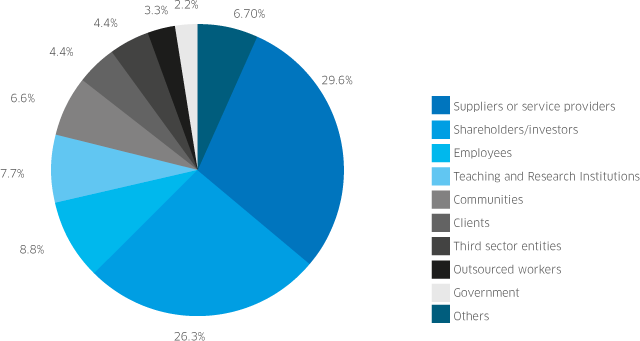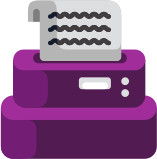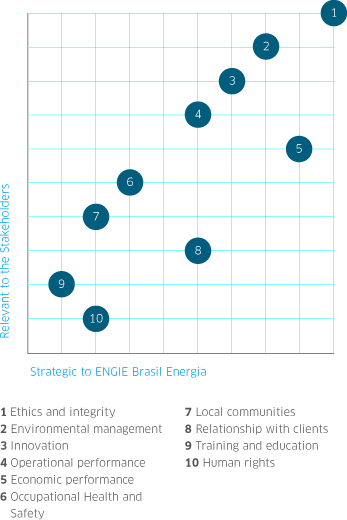Report profile
This is the tenth consecutive year that ENGIE Brasil Energia presents its Sustainability Report to stakeholders. The report observes the guidelines of the Global Reporting Initiative (GRI), a not-for-profits organization that proposes guidelines for ensuring the quality of the reports of organizations throughout the world. GRI G4-29; G4-30
As with 2015 and with the purpose of aligning this Sustainability Report to the Integrated Report of the International Integrated Reporting Council (IIRC), ENGIE Brasil Energia has adopted the GRI G4 Core Standard. The Sustainability Report is subject to external independent assurance, this year the responsibility of EY (see the Assurance Letter published by the independent auditors), thus ratifying the commitment to transparency and providing information which is relevant to the understanding of ENGIE Brasil Energia’s businesses by the different stakeholders with which the Company interacts. GRI G4-32; G4-33
Based upon GRI guidelines, this edition contains information on the management of the Company and its operational, environmental, social and economic performance in the period from January 1 to December 31, 2016. The document also incorporates GRI sectorial supplement indicators and IIRC recommendations - especially those relating to the generation of short-, medium- and long-term value and to the description of the business model. The publication also includes content extracted from the Management Report, published in February 2017. GRI G4-28; G4-30
With this same purpose in mind, ENGIE Brasil Energia discloses socio-economic indicators in its quarterly presentations of economic-financial results, at the same time also maintaining the information current in its website. The consolidated financial performance of the Company and its directly and indirectly controlled companies can be accessed from the Financial Statements section. GRI G4-17
In the 2016 Report, the Company has undertaken a revision of the materiality and prepared in the preceding report cycle (2015). We have endeavored to refine the Relevance Matrix in order to report indicators which reflect real impacts and effective management. We have maintained the principle of classifying of the Company’s socio-environmental performance in a broader context of sustainability in order to identify aspects and impacts, which are common to all the segments and regions in which ENGIE Brasil Energia operates.
Hence, the definition of the indicators recorded in this Report was based on the following processes:
a) The revision of the 2015 Matrix, with an analysis as to the relevance of the report, considering existing management and practices, the positioning of sector companies and the availability of information as well as stakeholders’ influence in the decision-making process;
b) Consultation with representatives from different stakeholder groups for evaluating the relevance of the aspects in the 2015 Report;
c) The Sustainability Committee’s validation of aspects selected as a result of consultations with the stakeholders; and
d) Discussion and subsequent approval of the Relevance Matrix 2016, proposed by the Committee to the Company’s senior management. GRI G4-22; G4-23; G4-29
In the event of any questions, comments and suggestions with respect to this Report, please contact the Company’s Investor Relations Department by e-mail [email protected] or by calling +55 48 3221-7221. GRI G4-31




